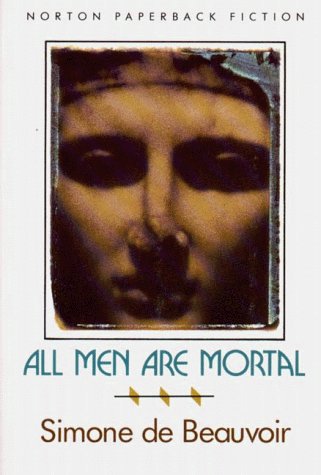
All Men Are Mortal
Book Description
Imagine living through the centuries, watching everyone you love wither away while you remain an untouched witness to mortality’s cruelty. In 'All Men Are Mortal,' a haunting exploration of love, existence, and the burden of eternal life unfolds. As a man condemned to immortality grapples with his unending solitude, he entangles with the vibrant lives of those around him, igniting passion and despair. Each encounter adds weight to his burden, leading to a bitter clash between desire and duty, freedom and confinement. Can one truly live when forever is the only option?
Quick Book Summary
"All Men Are Mortal" by Simone de Beauvoir is a philosophical novel that explores immortality through the eyes of Raymond Fosca, a man who cannot die. Spanning centuries, Fosca's life unveils the loneliness, alienation, and existential exhaustion that come from his inability to share the human condition. His encounter with Régine, a modern actress obsessed with fame and love, forces him to confront whether he can ever truly engage with mortal passions. The novel interrogates the value of life, the meaning imbued by mortality, and the consequences of transcending natural limits. Through beautifully interwoven narratives across time, Beauvoir exposes the tragedy of eternal life—the loss of purpose, intimacy, and ultimately, humanity—in a world where everything, except the immortal, is fleeting.
Summary of Key Ideas
Table of Contents
The Burden of Immortality
The story centers on Raymond Fosca, who, centuries ago, made a pact granting him immortality. As Fosca lives through eras of political upheaval, scientific discovery, and social transformation, his agelessness becomes both a blessing and a curse. Beauvoir uses his life as a philosophical inquiry into what it means to live when death is no longer a boundary. The narrative weaves between flashbacks to Fosca’s tumultuous past and his present-day interactions, creating a layered reflection on the passage of time and the search for meaning.
Freedom, Choice, and the Human Condition
Immortality, initially tempting, becomes for Fosca a source of profound isolation. While others age, love, and die, he remains unchanged and gradually disconnected from the world. His experiences of monarchy, revolution, and ordinary existence lose their significance, as repetition saps events of their uniqueness. The loss of shared mortality cuts him off from meaningful relationships, rendering love ultimately unsatisfying. Beauvoir interrogates the allure and inherent tragedy of living forever, showing how loss and death, paradoxically, allow life to have value.
Love, Loneliness, and Connection
The novel pits Fosca’s eternal existence against the vibrant, passionate Régine, a twentieth-century actress embroiled in the temporal and fleeting pursuits of fame and love. Régine, desperate for recognition and fearful of oblivion, becomes fascinated by Fosca’s secret. Their relationship is both attraction and confrontation: Régine seeks permanence through Fosca’s immortality, while he longs for the intensity embedded in mortal experience. Through them, Beauvoir explores how love is inextricably tied to the fact of mortality and our impermanence.
History and the Meaning of Existence
Throughout his journey, Fosca becomes increasingly aware that freedom and choice are meaningful only in a finite existence. His attempts to use eternal life for good—leading revolts, pursuing knowledge—ultimately seem futile, as each achievement fades with time, and every effort is undercut by the relentlessness of eternity. The book suggests that mortality is the source of urgency and significance in human action. By depriving Fosca of death, Beauvoir illustrates the importance of endings in crafting identity and purpose.
"All Men Are Mortal" is ultimately a meditation on history and the individual’s place within it. Fosca’s inability to make lasting change—even across lifetimes—highlights the limits of human agency. Through a richly detailed narrative, Beauvoir posits that true engagement with life requires acceptance of our limits and transience. The novel’s philosophical depth encourages readers to consider how it is precisely mortality that makes love, connection, and action meaningful, and warns against the temptation to transcend the very boundaries that give existence its shape.
Download This Summary
Get a free PDF of this summary instantly — no email required.





